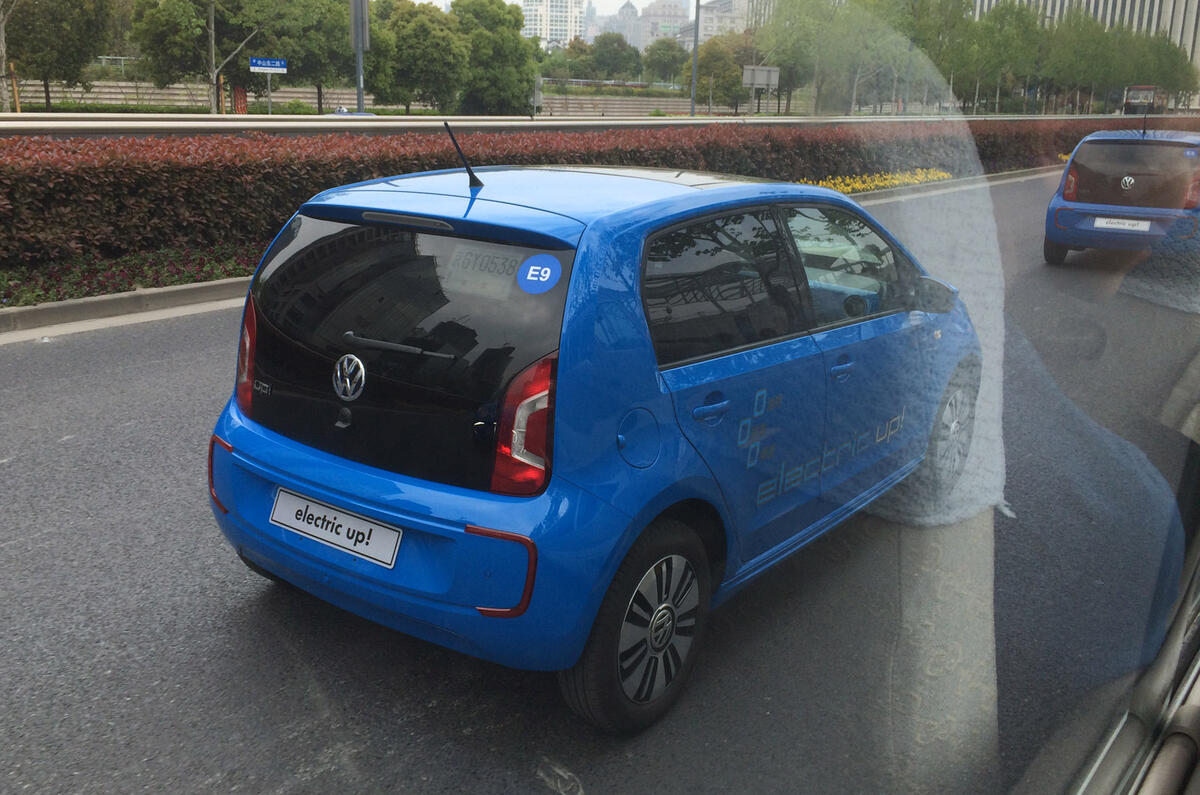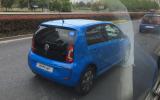As our battered shuttle bus bumped smokily through the traffic from Shanghai Pu Dong Airport to our hotel in the centre of the city yesterday, we drew up alongside a line of eye-catchingly vivid blue cars.
The cars in question were Volkswagen e-ups, travelling line astern and standing out against the rash of black, silver and grey saloons in the city.
They were not strictly passenger cars; each was driven by an immaculately dressed, white-gloved chauffeur, presumably ferrying very important people who are in town for the Shanghai motor show.
It would have been a moment of stage-managed perfection on the part of Volkswagen, my host for tomorrow’s show, were it not entirely coincidental that our bus happened to be in the area.
This is my first visit here, and I’d been braced for a sensory assault from the traffic. In fact, during a stroll around the Bund district, I was surprised by the amount of quiet electric and hybrid vehicles on the road.
China is aggressively pushing EVs. Although they are by no means the answer to all of the challenges the nation faces – the methods by which the electricity is produced in the first place is another matter altogether – year-on-year sales of EVs are on the rise.
As in Europe, though, EVs are coming from such a low base that the numbers aren’t yet particularly significant when you consider the size of the market. I stress the word yet – national and local government is introducing all kinds of tax breaks and incentives to further boost sales.
More prevalent in Shanghai are electric scooters. I can say from first-hand experience that these present something of a hazard to inattentive foreigners, mounting silent, unseen attacks in the way that a sparrow hawk dives upon an unsuspecting field vole.
These electric scooters are of a simple construction and the majority of them look extremely well used. They seem like a great idea: if you want to get across Shanghai, it doesn’t matter whether your car is powered by petrol, electricity or boiled dumplings – you’ll be stuck in traffic. On an electric scooter, you can whizz around with abandon.








Join the debate
Add your comment
Autocar...
@Phil R
@Norma Smellons: Where does one begin...
'AGW dogmatism', as you put
@Phil R
Now worthless points, you've just not understood them.
I said removing particulates and other emissions such as NO from urban environments is a good thing. I agree that most likely the burning of coal is not a clean process, but firstly you can put filters on a coal power station and burn it as cleanly as possible, but secondly, and mostly, Coal power stations tend to be near coal mines, not in cities. I'll be honest, I don't know how many coal power stations there are in central shanghai, but I suspect it's none. I do know for certain that there are now none in Central London.
I didn't defend China on it, I merely pointed out what is true, that they're investing massively into renewables. Google "China Renewable Investment" and see the articles from Forbes, the Guardian et al.